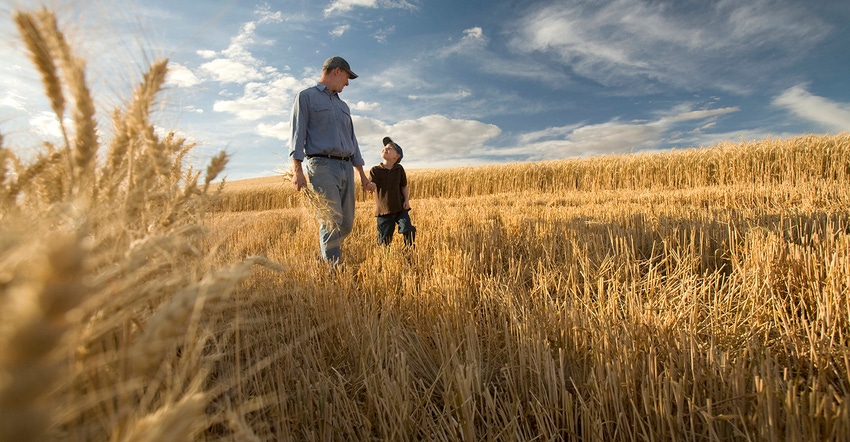
When I say the word ‘legacy,’ what first comes to mind? Maybe you think about transferring your farm operation’s assets to the next generation. Maybe it has to do with your operation itself and what will happen to it in the future. Or maybe you think more about the values and work ethic you’ve demonstrated to the younger generation or generations – both within the operation and family.
Regardless of what comes to mind first, these are all elements of the future legacy of a farm owner/operator. The farm leader is creating not only a business, but also a whole way of doing business that’s likely going to pass down to the next generation along with the farm’s assets, if that’s what you want for the future.
Legacy leap
Farm leaders who are intentional about the farm business they’re creating, the way they’re running that business, and intentional about who they want to be a part of that business in the future are actively shaping their legacy and the future of the operation.
Otherwise, it’s moreso up to chance as to whether the operation has the right foundation, structure and leaders it will need to carry on and continue to do business for many more generations.
Three questions
Here are three questions you can start asking to be proactive about this.
How do we currently do business on our farm? What’s the culture like (how we interact with each other and with others from outside the operation everyday)? Asking this question and taking inventory of the farm’s current culture can help you to get clear on what it’s really like to work in the operation. If what you find is not entirely in line with what you want – you still have time to work on changes! Workplace cultural change can take time, but you can work to build in the values and way of doing business you want to leave as part of your legacy.
Who is going to be involved in the operation – and are they ready? Who will be the main people involved in leading the operation, when the current generation of leaders decide to retire or be less involved? Does the operation need to be ready to support multiple family units, especially if it previously supported just one family? What changes will need to be made to be able to do that? Also, the future leader or leaders need to be working to prepare themselves to lead the farm – in all areas. Business skills – including financial and marketing skills – are going to be key for the farm leader of the future to lead a successful operation.
If the farm’s assets will be transferred, what’s the plan for how that’s going to happen? Getting a clear plan in place now for how the farm’s assets will be transferred to future owners is key. Planning will help to reduce the number of financial headaches that both generations might otherwise experience around asset transfers. Very often, both the older and younger generations have concerns about this – but might not know the best way to get the conversation started. Start working with farm business advisors now to get the ball rolling and asking the right questions – so there will be a clear plan in place.
Getting started
Very often, plans for the farm’s future can involve growth or additional revenue generation of some sort – whether that’s in terms of acres, side businesses or becoming more efficient.
Many operations also find they want to ‘up’ their marketing planning at that time as well, since grain marketing is one of the top business drivers impacting the level of success that a farm operation can experience.
Farmers have also found that working with our market advisors has helped ease their minds. The advisors help farmer clients with planning and execution around marketing decisions and help keep them up to speed on the current rapidly-changing grain market situation – and how it impacts their operation.
Get a free two-week trial of our marketing information service (MarketView Basic). Your free trial includes regular audio and video updates, technical analysis, recommendations and more. Learn more about our market advisor programs and offerings at www.waterstreetconsulting.com.
The opinions of the author are not necessarily those of Farm Futures or Farm Progress.
About the Author(s)
You May Also Like






